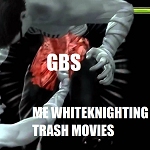|
Experto Crede posted:When trying to use curl_setopt to get verbose info from a curl_exec, PHP will send the output to stderr, which is fine when you're using cli, but a problem when running it in a web environment. Can you not get what you need with curl_error() and curl_errno()? If you use Guzzle, you can catch exceptions fairly easily.
|
|
|
|

|
| # ? Jun 7, 2024 16:07 |
|
We switched from the built-in curl functions to Guzzle for a few things at work, would definitely recommend switching to it if you can.
|
|
|
|
Does JSON_BIGINT_AS_STRING not work on a 64bit install?code:e: Or does it just not work on json_encode()? Peanut and the Gang fucked around with this message at 01:01 on Jul 8, 2014 |
|
|
|
Apparently my problem is some dumb licensing thing. https://bugs.php.net/bug.php?id=63520 People wanted PHP to remove the json implementation they used because it included the text "The Software shall be used for Good, not Evil." and they're saying php can be used for evil. Lol. What a bunch of idiots. Guess I'll just push in a working copy of the json source and recompile.
|
|
|
|
Peanut and the Gang posted:People wanted PHP to remove the json implementation they used because it included the text "The Software shall be used for Good, not Evil." and they're saying php can be used for evil. Na, it's worse than that. Not being allowed to be evil with software imposes an additional requirement on the source, which makes the JSON license incompatible with a wide variety of OSS licenses, including the GPL. Thus, Debian and Fedora and everyone else hypothetically liable for packaging together software with multiple licenses said "uh yeah no" and switched JSON libraries. (There's also a running joke that the canonical JSON library was sublicensed to IBM without the evil clause.)
|
|
|
|
I'm trying to sanitise a field in a set of RSS feeds i want to archive in a database but having a little trouble. I'm after the description fields mostly but it seems that because the text lies within a tag <![CDATA]]> like so: code:all the text gets deleted when i try to sanitize it. code:code:
|
|
|
|
http://www.php.net/manual/en/filter.filters.sanitize.php This might help. Alternatively, use this DOM parser http://www.php.net/manual/en/domdocument.loadhtml.php and just grab the parts you want from the DOM. Most importantly, ensure you're using prepared statements to insert any untrusted data into your database.
|
|
|
|
You're inappropriately mixing removing bad HTML, removing junk input (magic quotes) and database escaping. Don't do that. Validation, sanitization, input escaping and output escaping are four entirely different things that you should be doing in different areas of your code. Please go the suggested DOM route to extract the data from the XML, then use an HTMLPurifier-based whitelist to squish the resulting HTML into sanity. Escape when inserting into the database, not before. McGlockenshire fucked around with this message at 17:42 on Jul 8, 2014 |
|
|
|
get_magic_quotes_gpc() will always return false because magic quotes does not exist in PHP..
|
|
|
|
Biowarfare posted:get_magic_quotes_gpc() will always return false because magic quotes does not exist in PHP.. This is only true in recent versions. Given the code in question also still uses ext/mysql, chances are that the code targets older versions where magic quotes are still a threat.
|
|
|
|
McGlockenshire posted:You're inappropriately mixing removing bad HTML, removing junk input (magic quotes) and database escaping. Don't do that. Validation, sanitization, input escaping and output escaping are four entirely different things that you should be doing in different areas of your code. This is great thanks.
|
|
|
|
I'm getting some weird behaviour using empty() to filter simplexml loaded objects, I'm hoping you guys can give me a pointer as to why. I'm currently loading English and Chinese articles from xml files, and they share an xml structure but are otherwise separated by folder structure. There's increasing 'bleed' between them, so I'm looking to flatten it and serve the same article from the same xml file with different language fields. The key trigger is contained in <text> and added <ctext> fields. This code works to filter down to only the articles with Chinese versions: code:
|
|
|
|
You might have to explicitly cast the SimpleXMLElement objects to a string: (string)$details->ctext; If you var_dump($details->ctext); vs var_dump((string)$details->ctext); you should see the difference.
|
|
|
|
Is there anything synonymous to shorthand writing a php object array with properties like the javascript below?code:
|
|
|
|
php:<? $keyTimesAndText = [ ['time' => 4.773309, 'text' => " Arctic"], ['time' => 11.102234, 'text' => " achievement"], ['time' => 21.022100, 'text' => " intelligence"], ['time' => 22.960357, 'text' => " perseverance"], ]; ?> php:<?
$keyTimesAndText = array(
array('time' => 4.773309, 'text' => " Arctic"),
array('time' => 11.102234, 'text' => " achievement"),
array('time' => 21.022100, 'text' => " intelligence"),
array('time' => 22.960357, 'text' => " perseverance"),
);
?>
|
|
|
|
KARMA! posted:
The second one worked great! Especially since it worked with json_encode. Thank you!
|
|
|
|
KARMA! posted:
Slight nit-pick but the Javascript array style came in 5.4 
|
|
|
|
musclecoder posted:Slight nit-pick but the Javascript array style came in 5.4 Ah, that's what I get for trusting stack overflow.
|
|
|
|
Is there a way to specify outgoing ip address with php SCP?
|
|
|
|
revmoo posted:Is there a way to specify outgoing ip address with php SCP? I believe you would do that with the ssh2_connect method, and I can't find any way in the docs to use the -b switch. You might have to get all fancy with routing.
|
|
|
|
I am working with the DataTables jQuery plugin and since they don't have great support for SQL Server, I am writing my own code to handle table generation, pagination, and ordering. I know what to do on that front, but I am having issues accessing some of the data that is sent via AJAX to the table generation file. The data appears to be sent as JSON: code:php:<?PHP // Object $obj = json_decode($_GET['order']); echo $obj->{'column'}; // Outputs null echo $obj->{'dir'}; // Outputs null // Associative array $arr = json_decode($_GET['order'],true); echo $arr['column']; // Outputs null echo $arr['dir']; // Outputs null ?> php:<?PHP // Explodes $_GET['order'] into an array $arrExplode = explode(":",$_GET['order']); echo $arrExplode[0]; // Outputs null echo $arrExplode[1]; // Outputs null ?> Aniki fucked around with this message at 00:43 on Aug 11, 2014 |
|
|
|
I would expect that data to come in via POST, not GET.
|
|
|
|
Subjunctive posted:I would expect that data to come in via POST, not GET. I went ahead and changed it to send data via POST, but it does send data via GET by default: code:php:<?PHP $obj = json_decode($_POST['order']); $arr = json_decode($_POST['order'],true); $output = array( "sEcho" => intval($_POST['sEcho']), "iTotalRecords" => $iTotal, "iTotalDisplayRecords" => $iFilteredTotal, "limit" => $limit, "Order" => $_POST['order'], "objColumn" => $obj->{'column'}, "objDirection" => $obj->{'dir'}, "arrColumn" => $arr['column'], "arrDir" => $arr['dir'] "postColumn" => $_POST['order']['column'], "postDir" => $_POST['order']['dir'] ); echo json_encode( $output ); ?> code:Edit: This issue has been resolved now. Aniki fucked around with this message at 01:37 on Aug 11, 2014 |
|
|
|
Ok, I figured it out by doing a var_dump on $_POST['order']. In order to directly access the variables that I needed, I need to call them like:php:<?PHP echo $_POST['order'][0]['column']; // Outputs 2 echo $_POST['order'][0]['dir']; // Outputs asc ?> Thanks for your help, just changing things slightly from GET to POST made me think about the problem differently.
|
|
|
|
Subjunctive posted:I would expect that data to come in via POST, not GET. Why? It's retrieving data from the server, not submitting it to the server. Maybe I've not understood properly though.
|
|
|
|
Is there anyone that could help me out with setting this up: http://welcometocreature.com/cheapstaprint/ It's for the annual summer party at my work place and my PHP skills are pretty rusty/almost non-existent at this point :/
|
|
|
|
1. Set up server. Consider using EasyPHP if you don't know what you're doing. 2. Download Cheapstaprint code from github. 3. Extract it so index.php from the code can be run by EasyPHP via the browser. 4. Edit index.php and change $clientId="INSERT YOUR INSTAGRAM CLIENTID"; to be your instagram Client Id. See this article on fetching your instagram Client ID. 5. Browse to the index.php and type in the location you want to search for. I literally only glanced at the code, but give that a go and let us know if/where you get stuck.
|
|
|
|
Does anyone have experience generating secure Paypal Add To Cart buttons with PHP? They have a tool for generating the HTML but it's just a form that anybody could edit with Firebug to change item values. I can't find any examples of creating this button form securely with PHP. I mean, they have an API reference but I've no idea how you actually use that with PHP. Also, I've had a look at their SDK stuff on github but we don't have composer installed so I'm not clear on how I use any of that stuff.
|
|
|
|
I have no experience with paypal or that specific API but don't forget that absolutely anything coming from the client is to be considered untrustworthy. I think you're trying to explain that in your post but you're saying things like generating the form securely from PHP which needs to be clarified. You'd generate the form and validate however you want client-side (i.e. ensuring certain patterns of values are met, doubles in the price column, etc) but that's just as a courtesy to the client and to save complaints. Every single bit of data received by the client is, as you said, inherently suspect, and must be confirmed against your database. That's when your PHP script take the data and confirms properly that the item IDs are correct, that the prices match, that there is enough stock of those items, etc etc. Then once you've confirmed it's a valid order request, your PHP sends it off to the paypal API to confirm that the purchase is valid (i.e. that they have enough funds or a valid account etc etc). So you'd have at minimum 3 steps: 1. Client-side form validation as a courtesy for the client to help prevent typos or mistaken prices etc. 2. Actual form validation on the PHP end, which treats every single point of input as actively hostile, rejects any invalid formats, and checks that everything is okay according to the state of your database. (Don't forget your database can have hostile content as well but I won't go into that now) 3. Check with the paypal API to ensure that your token is valid (supplied via your PHP script, not the client-submitted form), their payment details are valid, etc. Then Paypal will validate everything from there on out and presumably hand you back some token to confirm the successful transaction, and redirect the user back to your site. Like I said I haven't used the paypal API before but just remember that it doesn't matter if the user mucks around with the HTML on their end, every bit of data sent to you (including form elements, names, data, etc) must be considered hostile by your script and handled accordingly. Just generate a form that holds the user's hand as a courtesy; there's no security client-side whatsoever.
|
|
|
|
|
I get that, but from the generated code it looks like the form is processed on Paypal's end directly. I hoping for something specific: I've not been able to find any PHP examples and the ones I have found have been ~2 years old.
|
|
|
|
nexus6 posted:I get that, but from the generated code it looks like the form is processed on Paypal's end directly. I hoping for something specific: I've not been able to find any PHP examples and the ones I have found have been ~2 years old. PayPal has thought of this and taken care of it, especially if you have an account with them. After signing into your PayPal account, go here: https://www.paypal.com/us/cgi-bin/webscr?cmd=_singleitem-intro-outside From there, you can generate a button. I just made a sample one for a single product of $35.00. The resulting HTML looks like this: code:This is a basic PayPal button integration, they click the button, go to PayPal, pay, and then go back to your site. If you need more complex integration than that, you'll have to use the PayPal APIs which are documented quite well here: https://developer.paypal.com/docs/api/ Finally, if you're just selling a few items (and are based in the US), use Gumroad, so much better than PayPal.
|
|
|
|
v1nce posted:1. Set up server. Consider using EasyPHP if you don't know what you're doing. Hah, that is still a bit too advanced for me. If you could spell it out a little more, I would be really grateful 
|
|
|
Eight Is Legend posted:Hah, that is still a bit too advanced for me. If you could spell it out a little more, I would be really grateful Which part in particular are you having issues with? You have to meet him halfway here.
|
|
|
|
|
It is nice to see there is already a PayPal discussion going on. I am working on integrating the PayPal REST API into our system and have run into some issues with namespacing (e.g. use PayPal\Api\Amount;). I am using composer and the code in the sample directory runs fine, but when I move that same code inside of a class*, then it stops working. I have noticed that the errors are different if I include the namespacing inside or outside of the class, but either way the code won't run properly. Here is an example of a simplified class where the namespacing is declared outside of the class: php:<?PHP // # CreatePaymentSample // // This sample code demonstrate how you can process // a direct credit card payment. Please note that direct // credit card payment and related features using the // REST API is restricted in some countries. // API used: /v1/payments/payment require __DIR__ . '/../bootstrap.php'; use PayPal\Api\Amount; use PayPal\Api\Details; use PayPal\Api\Item; use PayPal\Api\ItemList; use PayPal\Api\CreditCard; use PayPal\Api\Payer; use PayPal\Api\Payment; use PayPal\Api\FundingInstrument; use PayPal\Api\Transaction; class processSale { public function directSale() { $this->payPalSale(); } // Processes a sale request using the PayPal REST API public function payPalSale() { // GET AUTHORIZATION TOKEN // ### CreditCard // A resource representing a credit card that can be // used to fund a payment. $card = new CreditCard(); $card->setType("visa") ->setNumber("4417119669820331") ->setExpireMonth("11") ->setExpireYear("2019") ->setCvv2("012") ->setFirstName("Joe") ->setLastName("Shopper"); // ### FundingInstrument // A resource representing a Payer's funding instrument. // For direct credit card payments, set the CreditCard // field on this object. $fi= new FundingInstrument(); $fi->setCreditCard($card); // ### Payer // A resource representing a Payer that funds a payment // For direct credit card payments, set payment method // to 'credit_card' and add an array of funding instruments. $payer = new Payer(); $payer->setPaymentMethod("credit_card") ->setFundingInstruments(array($fi)); // ### Additional payment details // Use this optional field to set additional // payment information such as tax, shipping // charges etc. $details = new Details(); $details->setShipping('1.20') ->setTax('1.30') ->setSubtotal('17.50'); // ### Amount // Lets you specify a payment amount. // You can also specify additional details // such as shipping, tax. $amount = new Amount(); $amount->setCurrency("USD") ->setTotal("20.00") ->setDetails($details); // ### Transaction // A transaction defines the contract of a // payment - what is the payment for and who // is fulfilling it. $transaction = new Transaction(); $transaction->setAmount($amount) ->setDescription("Payment description"); // ### Payment // A Payment Resource; create one using // the above types and intent set to sale 'sale' $payment = new Payment(); $payment->setIntent("sale") ->setPayer($payer) ->setTransactions(array($transaction)); // ### Create Payment // Create a payment by calling the payment->create() method // with a valid ApiContext (See bootstrap.php for more on `ApiContext`) // The return object contains the state. try { $payment->create($apiContext); echo $payment->getId() . "<br />"; echo $payment->getIntent() . "<br />"; echo $payment->getState() . "<br />"; } catch (PayPal\Exception\PPConnectionException $ex) { echo "Exception: " . $ex->getMessage() . PHP_EOL; //"<Pre>" . var_dump($ex->getData()) . "</Pre>"; $arrException = json_decode($ex->getData(), true); echo $arrException['name'] . "<br />"; echo $arrException['details'][0]['issue'] . "<br />"; echo $arrException['debug_id'] . "<br />"; exit(1); } } } $saleRequest = new processSale; $saleRequest->directSale(); ?> quote:Notice: Undefined variable: apiContext in C:\xampp\htdocs\PaymentTest\rest-api-sdk-php-master\sample\payments\paymentClassTest.php on line 97 Line 97 is where I run, "$payment->create($apiContext);" and I am assuming that it is not running due to a scope issue with the class and namespacing. With that in mind, I had tried moving the namespace calls inside of the class (moved into public function payPalSale()) to see if that made a difference and received the following error: quote:Parse error: syntax error, unexpected 'use' (T_USE) in C:\xampp\htdocs\PaymentTest\rest-api-sdk-php-master\sample\payments\paymentClassTest.php on line 19 So moving the namespace code inside of the class and function did not help things. I am sure that I am missing something basic about scope here, so any help would be appreciated. *We use multiple payment gateways, so I wrote a class that allows us to use generic calls that route to the proper gateway and then return a consistent set of results. Edit: I am using PHP Version 5.5.15 in XAMPP for testing purposes. Aniki fucked around with this message at 18:56 on Sep 4, 2014 |
|
|
|
Doesn't look like a class issue, the variable $apiContext has never been defined anywhere. And if it's defined in bootstrap.php you either need to use the global keyword to use it in the payPalSale() function (yuck, don't do this) or pass it into the object (do this instead). Also, use the full path to the PayPal exception in the catch: catch (\PayPal\Exception\PPConnectionException $ex) to actually catch it.
|
|
|
|
musclecoder posted:Doesn't look like a class issue, the variable $apiContext has never been defined anywhere. And if it's defined in bootstrap.php you either need to use the global keyword to use it in the payPalSale() function (yuck, don't do this) or pass it into the object (do this instead). Thank you very much for your help, it looks like $apiContext is defined in bootstrap.php and when the code was outside of the class, it could access that value, but inside of the class it could not access that variable, so it was a scope issue but as you said the scope issue was with $apiContext and not the namespacing. To get around that I can make $apiContext a global variable in bootstrap.php ($GLOBALS['apiContenxt']), I can call the getApiContext() function inside of the class, or I can pass it to object. What would you suggest instead of payPalSale()? Is it a naming convention issue or is there an issue with how it is structured? I included a very simplified version of the code, but here is a little more of it. We currently use three different payment gateways, so the code is meant to normalize calling payment requests and handling their responses. php:<?
class processSale {
public $orderId, $amount, $ccCvv, $paymentProfileId, $paymentGatewayId;
public function directSale($orderId, $amount, $ccCvv, $paymentProfileId, $paymentGatewayId) {
$this->orderId = $orderId;
$this->amount = $amount;
$this->ccCvv = $ccCvv;
$this->paymentProfileId = $paymentProfileId;
$this->paymentGatewayId = $paymentGatewayId;
switch ($paymentGatewayId) :
case 1
return $this->payPalSale();
break;
case 2:
return $this->gateway2NameRemovedSale();
case 3:
return $this->gateway3NameRemovedSale();
break;
default:
// Handle orders without a valid paymentGatewayId
break;
endswitch;
}
public function payPalSale() {
// Gets the password information for the gateway being used for this transaction.
$arrPaymentGatewayInfo = getPaymentGatewayInfo($this->paymentGatewayId);
$arrOrderInfo = getOrderInfo($this->orderId, $this->paymentProfileId);
// Sends request and handles the response
return $arrTransactionData;
}
}
$saleRequest = new processSale;
$arrTransactionData = $saleRequest->directSale(1,1.00,'999',12,1);
?>Aniki fucked around with this message at 20:51 on Sep 4, 2014 |
|
|
|
I don't care what you name your method, I meant don't make it a global variable (you did exactly this). Instead, pass it into your object or method:php:<?
public function __construct($apiContext)
{
$this->apiContext = $apiContext;
}
public function processSale()
{
// do stuff
$whatever->stuff($this->apiContext);
// do more stuff
}
?>
|
|
|
|
musclecoder posted:I don't care what you name your method, I meant don't make it a global variable (you did exactly this). Instead, pass it into your object or method: I get what you are saying. Thanks again for your help with this.
|
|
|
|
I'm using Simple HTML DOM to scrape some content. The problem I'm having is I need to scrape the href from a particular linked image. This is the html: code:Anyone know the best way to approach this? I thought I could do this sorta, but I'm not sure how to get the href. code:
|
|
|
|

|
| # ? Jun 7, 2024 16:07 |
|
I haven't used it before but I just took a quick look at the documentation and why not use $e->parent() and then get the ->href of that? e: So: code:Sulla Faex fucked around with this message at 19:18 on Sep 5, 2014 |
|
|
|























